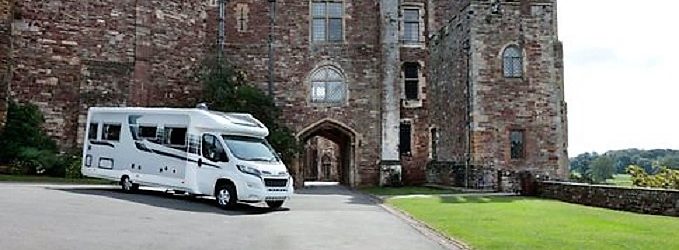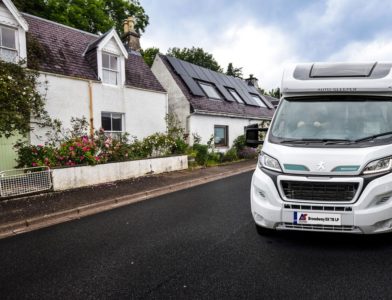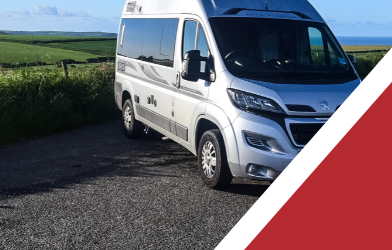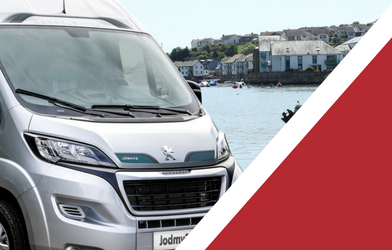As we’re one of the country’s leading motorhome dealers, is hardly surprising that we are often asked for tips and suggestions about choosing and using a motorhome.
Here are just a few of the ideas we have offered over the years. We offer them again in the hope that you, too, might find them useful.
Take the time to choose a motorhome that’s appropriate for you
Your aim, of course, is to choose a motorhome that is the right size for you and its intended use. If it turns out to be just too big or too small – or any other fault for that matter – it can be a serious annoyance and potentially a poor use of your money. So, choose carefully by taking your time and remembering that nine times out of ten there is absolutely no need to rush.
Take as long as you need to size up what is a varied, diverse, and competitive market, therefore, to choose the vehicle that’s likely to prove appropriate for you, your family, and your lifestyle.
We make no secret of the fact that we’d be delighted to help you in achieving just that excellent result!
Think about how you plan to use your motorhome – and where
Motorhomes are nothing if not versatile and adaptable – they’ll take you to those parts many other vehicles simply cannot reach.
It’s only realistic to accept that some of the smallest campsites in remote, rural, or especially wild locations that are well off the beaten track may be difficult to access if yours is one of the larger or heavier motorhomes available on the market.
Some of the campsites identified by the Cool Camping website as “almost wild” might give you a snapshot of the wilder side of adventures you could get up to in your motorhome.
The upshot, of course, is that if you have your heart set on getting off the beaten track, then a smaller motorhome might be more practical.
Get the family involved in your choice
Whether you are buying a new or a pre-loved motorhome, the financial outlay will be nothing to sneeze at. It’s the kind of sum you’d almost certainly want to discuss with your partner or spouse – and, possibly, even any grown-up children still at home.
Involve the whole family not just in the choice of your preferred make and model, but also about such details as the appropriate interior layout or even the powertrain of that particular vehicle.
To help you in any such family discussion, we can point you in the direction of our helpful guide: Buying the right motorhome.
Consider driver training – and break yourself in gently on your very first trip
You’ll need to make sure that you have the appropriate licence allowing you to drive the motorhome you’re thinking to buy. The official website compiled by the Driver and Vehicle Licensing Agency (DVLA) is the place to start, of course, but if you’d like further help about what that all entails, by all means, please contact us and we’ll happily explain.
With the appropriate driving licence in your pocket, it might be time to consider some basic training in driving a vehicle as big as your new motorhome and familiarise yourself with the controls. Suitable training is unlikely to be all that expensive.
Finally, even if you’re an experienced old hand in driving a motorhome, almost every vehicle handles and performs differently from another. It’s probably a good idea to make your first trip in your new motorhome a short one – on which to learn its handling characteristics.
Plan a few journeys based largely around bigger roads and motorhome parks with good access and turning facilities. Avoid trying to test your close manoeuvring and reversing skills in a tiny site on your very first trip.
Don’t skimp on motorhome insurance
Your motorhome, its accessories, and all your camping gear will be expensive.
As with almost all forms of insurance, the cover provided by one policy might be significantly different from that offered by another. It’s not a question of being better or worse but simply the suitability of a particular policy for you, your motorhome, and the way you plan to use it.
For that reason alone, you might want to avoid choosing the cheapest insurance policy and instead spend some time researching which motorhome insurance offers the most cost-effective cover for the level of protection you need. That is the way you might be assured of getting good value for money.
Head over to our motorhome insurance guide which discusses how to choose the most appropriate insurance for you as well as covering the possibility of GAP insurance and breakdown insurance.
Research the rules of the road when going abroad
Over the last 30-40 years, most rules of the road have more or less converged throughout continental Europe.
Nevertheless, significant differences remain and the UK’s departure from the EU has thrown some of the details into starker relief – against a background of practices that might catch out the unwary.
Two examples of lingering divergence, for example, are the “priority to the right even if a minor road” and some old “priority to vehicles that are joining the roundabout” systems which are still fairly widely found in France.
Even if you know these from car driving, remember that your braking distances will be longer in a motorhome – because it’s a heavier vehicle.
As always, the bottom line of any advice on driving abroad is to research in advance the road systems in the country you’re heading off to in that new motorhome! You might also want to review our guide: Taking your motorhome to Europe.




